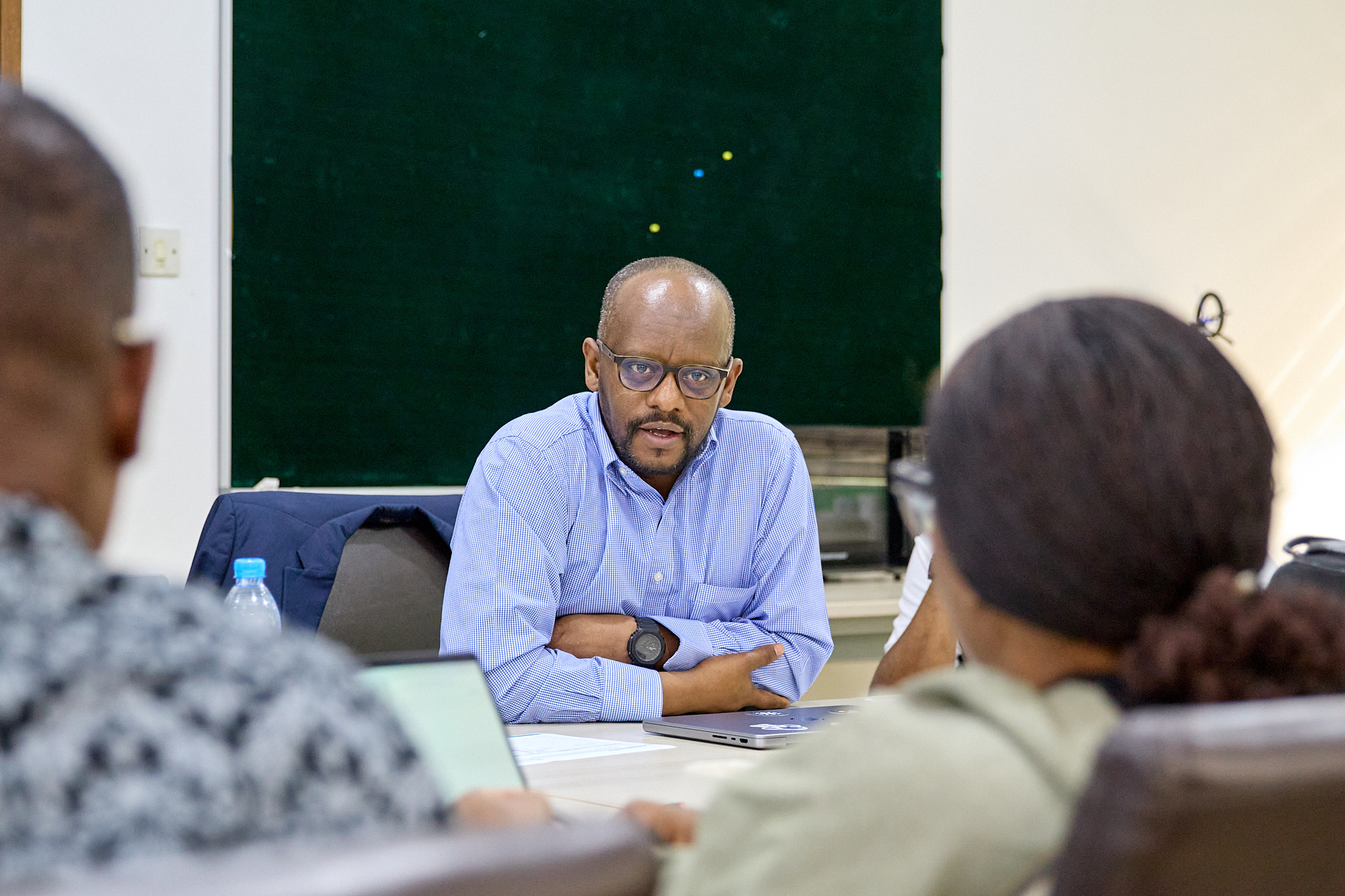
MEETING: Investigating Tanzania’s success with tailored malaria interventions

A high-level stakeholder engagement meeting was recently held in Dar es Salaam as part of the Subnational Tailoring (SNT) for Malaria Control in Tanzania study. The aim was to discuss two key themes: successes from the first two rounds of SNT implementation and preparations for upcoming cycles,
The meeting was facilitated by Dr. Ally Olotu of the Ifakara Health Institute, brought together key stakeholders including Dr. Samweli Lazaro, Program Manager at the National Malaria Control Program (NMCP), officials from the President’s Office – Regional Administration and Local Government (PO-RALG), the Ministry of Health, the World Health Organization (WHO), and global research leaders, notably Prof. Abdisalan Noor from the Harvard T.H. Chan School of Public Health who is also the project’s Cross-country Principal Investigator.
“Very effective public health requires that it uses evidence to make decisions,” said Prof. Noor. “That evidence must be selected based on what’s happening locally, but also reflect the broader international picture. Like malaria itself, evidence varies in space and time—and decision-making must be equally responsive.”
What is Subnational Tailoring (SNT)?
Subnational Tailoring (SNT) is a strategy that adapts malaria control efforts to local contexts by using district-level data to inform decision-making. Rather than applying a one-size-fits-all approach, SNT enables malaria programs to assess the disease burden and implementation capacity at subnational levels—such as regions or councils—and design targeted interventions that match specific local needs.
“The whole idea behind SNT,” explained Prof. Noor, “is to understand the determinants of malaria—socio-economic, environmental, epidemiological—and use that understanding to make better decisions about how to control it. Countries like Tanzania, where resources are limited, can’t afford to apply the same intervention everywhere. SNT helps ensure that resources go where they are needed most, based on evidence.”
This approach ensures that limited resources are used efficiently to achieve maximum impact and that malaria control strategies reflect the diverse realities faced by different communities across the country.
Why this matters globally and for Tanzania
Tanzania has made remarkable progress in malaria control. Through the strategic use of local data, the country has developed and implemented context-specific interventions—earning recognition as an exemplar country. The ongoing SNT study is documenting this experience to generate evidence and lessons that could inform similar efforts in other malaria-endemic countries.
A representative from the Ministry of Health reaffirmed the government’s continued commitment to supporting the project's efforts. This assurance highlights national ownership of the initiative and the importance of aligning research evidence with policy action.
“Tanzania is one of five exemplary countries selected for this study,” Prof. Noor explained. “The whole idea behind the ‘exemplar’ model is to learn from positive outcomes—what works, why it works, and how it can be adapted elsewhere. This is an opportunity not only for Tanzania to reflect on its successes, but also to address its challenges and define the future direction for using evidence to guide malaria control.”
The Big Question this study is aiming to answer
How has Tanzania managed to successfully implement subnational tailoring to inform malaria strategy and resource allocation, and what can other countries learn from this approach?Learn more about the study here: Subnational Tailoring for Malaria Control in Tanzania: An Exemplars Study on Implementation, Decision-Making, and Impact
Methods
The study draws from a mix of approaches, including analysis of program data, policy review, and stakeholder interviews across different administrative levels. It involves extensive engagement with decision-makers, implementers, and international experts.
Conclusions & Recommendations
Participants agreed that Tanzania’s experience with SNT offers valuable lessons in evidence-driven public health strategy. Moving forward, the study recommends sustained investments in local data systems, structured feedback loops between regions and central programs, and capacity-building at sub-national levels. These steps will ensure that SNT continues to serve as a cornerstone of effective malaria control—not just in Tanzania, but across other countries seeking to replicate its success.
“This is a moment for Tanzania to tell its own story,” Prof. Noor emphasized. “To not only celebrate what’s working, but to confront what isn’t—and in doing so, build stronger systems that last. The decisions we’re seeing today are getting better and better, and this approach is already attracting more investment and attention internationally.”
Closing Reflections
The meeting closed with remarks from Dr. Olotu thanked all participants for making time to take part and contribute to the discussions. He called for continued collaboration and stronger alignment between research and policy to accelerate progress in malaria control both nationally and beyond.
